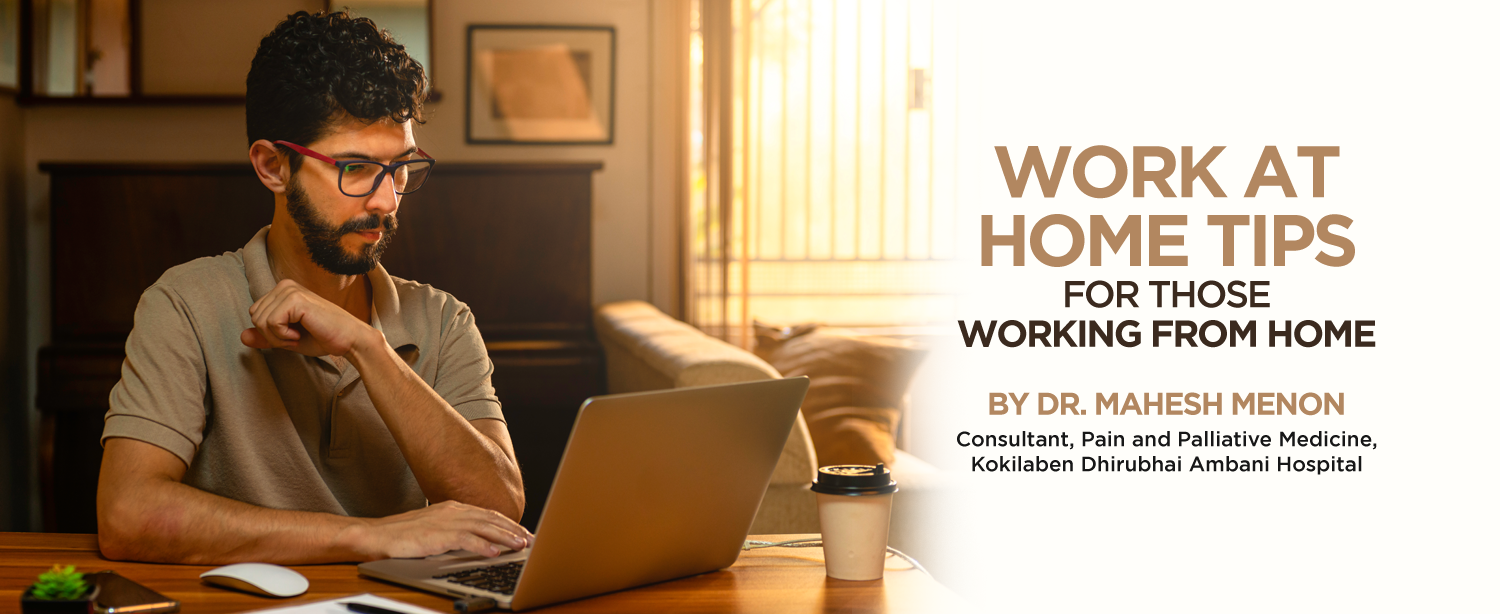The COVID 19 pandemic has led to a situation where a majority of people have begun to work from home. In most cases, with domestic help not being available, they have to ‘work at home’ as well as ‘work from home’ and cope with both domestic chores and office work. For homemakers, the lack of domestic help has added to their workload. Among other issues, one complaint that is emerging is an increase in their symptoms and pain for many patients who are restricted to their homes, the most common being back pain and knee pain.
An increase in workload is contributing to this increase in pain. It is important for all members of the family to participate and share the domestic chores. If family members are not supportive, then the onus falls on the homemaker who now has to care for a larger number of people at home and spend more standing cooking in the kitchen with along with the burden of other household work. If there are only senior citizens living alone, then many elderly patients cannot manage heavy physical work at home, and their pain worsens.
For professionals, working from home, they end up sitting for longer periods of time, which can worsen their pain. The lack of exercise arising from closure of gyms, parks, walking areas during lockdown has caused muscle weakness and led to many individuals putting on weight.
Here are some work at home tips for those working from home:
- Avoid sitting for more than 30-60 minutes continuously. Take breaks, walk around and stretch a little
- Make a regular schedule for basic stretching exercises at home. Some like to do this early in the morning, some prefer it to be in the evening. Find out what works for you best and fit it in your daily schedule
- In the kitchen, avoid bending down while cooking or over the sink while washing dishes as this posture can aggravate back pain. Keep a footstool to rest one leg, and keep alternating your weight between each leg, so that when you bend, the stretch is taken off the back
- Use floor mops, long handle brooms and stand, instead of bending/ squatting while mopping the floor or sweeping
- Get regular sleep. Good sleep ensures good health and reduces pain levels
- Meditate for some time every day. This helps in two ways – It helps to reduce pain levels, and also helps in coping with stress during these times from the negative messages floating around
- Listen to your body. Pain is your body’s way of telling you something is wrong. Do not push yourself when you have chronic pain, because this may worsen your pain levels
- Use cold packs or warm packs for local application. Avoid using very hot bags for a long period, as this can be harmful. Apply these for a few minutes only, and repeat frequently
- Use lumbar belts or walking sticks even while inside the house. This will support the back and take load off the knee
- Most important, do not hesitate to connect with your doctors! Physical distancing is needed, but today technology allows us to connect with doctors virtually on telemedicine. This will help in getting the right advice to help you manage the pain in its early stages and prevent it from worsening
This blog post is written by: Dr. Mahesh Menon, Consultant – Pain and Palliative Medicine, Kokilaben Dhirubhai Ambani Hospital. Find out more about Dr. Menon by clicking here
Tags: pain mangement, wfh, work from home


